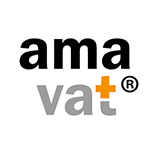The BCC calls for tax cuts
The British Chambers of Commerce calls for tax cuts
Ahead of the British Chancellor’s Autumn Budget in November, the British Chambers of Commerce (BCC) has urged the UK Government to take immediate action to rule out an expected 3.9% increase to business rates (commercial property tax).
With 75,000 companies represented by the BCC, which employee early 6 million people in the UK, they have called for a number of tax commitments from the UK government to get the economy ready for Brexit.
The BCC recommends delaying the Corporate Tax roadmap, with corporate tax remaining at 19% until after Brexit, rather than dropping a further percentage point, with the resulting revenue ring-fenced to help ease the liability of up-front taxes and costs that hit business cash flow and destabilise investment.
Additionally, the BCC called on the government to tackle the up-front cost of doing business, by promising not to announce any more input taxes and other substantial costs; to scrap the annual uprating of business rates (commercial property tax) for the next two years and to remove plant and machinery from business rates valuations; to also introduce a ‘Brexit Special’ Annual Investment Allowance – a tax relief on capital investments – involving a short-term increase to the limit to GBP1 million (USD1.3 million).
The UK government consults on New VAT rules for fulfilment businesses
The UK Government has launched a consultation into a due diligence scheme which aims to guarantee that overseas traders obey with value-added tax (VAT) regulations. This new scheme targets businesses that store any goods imported from outside the EU for or on behalf of someone outside the EU.
It makes available, if a business is seeking to carry on third-country goods fulfilment business must first notify and gain approvals from the HM Revenues and Customs (HMRC). A business must then alert HMRC if they know or have realistic grounds to suspect that a third-country customer has not met a VAT or customs duty responsibility, in relation to third-country goods warehoused by the approved person. It also limits an approved person from carrying on a third-country goods fulfilment business with a person named in a notice by the Commissioners.
The rule also provides that an approved person must give notice to all third-country customers about the scheme and makes further provision about what that notice must state. Among other things, it contains certain due diligence and record-keeping responsibilities, including that the business must authenticate a third-country customer’s VAT registration number.
Resulting from a public consultation in Summer 2016, the Fulfilment Businesses (Approval Scheme) Regulations 2018 has been opened up for consultation, and primary legislation in the Finance (No 2) Bill 2017 has been tabled in Parliament.
This technical consultation looks for comments on the effect on fulfilment businesses in applying the duties of the scheme, including record-keeping requirements; whether the provisions for group registrations in Part 5 will be advantageous to group companies; and the impact of the scheme on small and micro businesses.
£1.5 billion UK import VAT fulfilment house scheme
Starting from 30th June 2018, all UK fulfilment houses providing imported goods storage for non-EU businesses will require to apply to join a new, approved register. This scheme has been created to tackle import VAT and customs fraud, estimated to cost the UK between £1 and £1.5 billion per annum, originally announced in the 2016 UK Budget.
The UK government has already made online market places possibly liable for VAT fraud committed by non-EU e-commerce sellers on their website.
Fulfilment House Register – How must apply?
This system affects all UK-based businesses that fulfil orders of imported goods for third-parties. Some rules may also relate to businesses that import goods or those that transport imported goods to and from fulfilment houses.
Businesses will require to be registered if they store goods which are:
- Imported from a country out with the European Union;
- Owned by, or stored on behalf of, someone established outside the European Union;
- Offered for sale and have not been sold in the UK before;
- Any of the goods above have been held for longer than 24 hours.
Once a submission to join the scheme is received, HMRC will execute background checks on the company, its directors and associates. To ascertain if there are records of revenue non-compliance, fraud or other criminal convictions.
Non-EU customers will have due diligence requirements
Once a fulfilment house is registered they will be obliged to keep records for at least 6 years and verify foreign customers’:
- The names and contact details;
- VAT registration numbers;
- The type and quantities of goods stored in their warehouse;
- Import entry numbers; and
- The delivery addresses.
Additionally, all fulfilment houses in the scheme must supply notices to customers which explain their tax and duty obligations in the UK.
If a customer is breaking VAT or customs rules
If a fulfilment house suspects a customer has not met its VAT or customs duty responsibilities, it must take the resulting actions:
- Detail their obligations to them;
- Notify HMRC; and
- If instructed by HMRC, cancel the service.
Penalties for not following the above requirements range from £500.00 to £3,000.00.
Non-compliance fines
If a late application incurs, there will be a fee of £500.00, which will rise by £500.00 per month to a maximum of £3,000.00. Then after April 2019, there is a risk of a £10,000.00 fine and loss of rights to trade as a fulfilment house. The fine for not keeping checks up-to-date will be between £500.00 and £3,000.00.
amavat® provides a one-stop-shop solution for VAT Compliance within Europe. We assist clients with a single point of contact that speaks their language and handles all VAT related issues with a standard and cost efficient approach.
If you have any queries or questions, please do not hesitate to contact amavat®.
To find out more information please visit www.amavat.eu





